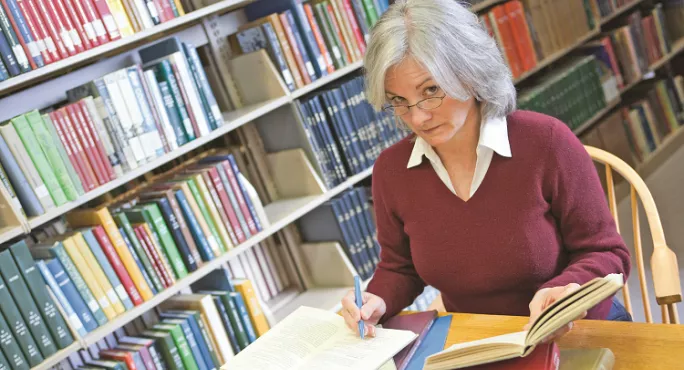- Home
- Advanced QTLS touted, but do lecturers want it?
Advanced QTLS touted, but do lecturers want it?

The Education and Training Foundation is considering introducing an advanced qualified teacher learning and skills (QTLS) status for FE lecturers, TES can reveal.
The news comes as figures show that membership of the ETF body for FE teachers, the Society for Education and Training (Set), has increased by more than 50 per cent since its launch a year ago. The ETF has set a target of 20,000 members next year, rising to 35,000 by 2018.
The proposed advanced status would be aimed at experienced teaching staff at the pinnacle of their professional ability, according to Tim Weiss, the ETF’s director for business development, membership and quality.
Showing commitment
In 2012, QTLS became equivalent to qualified teacher status for school-based teachers, giving FE teachers the right to work in schools. While the requirement for teachers in FE to have QTLS was scrapped by the coalition government in 2013, the qualification is still available exclusively for Set members.
Set was launched by the ETF as a successor to the Institute for Learning (IfL). At its peak, the IfL had more than 180,000 members, but when it closed in late 2014, just 9,000 were still on its books. The organisation’s popularity nosedived when its government funding was stopped and its compulsory membership fee was increased from £30 to £68. This led to a boycott by members of the University and College Union.
Mr Weiss said that Set membership was a way for teachers to show commitment to the job. “There are the tangible benefits, like getting access to a member journal, events, networks, online content and research,” he told TES. “It also allows them to apply for QTLS status. The other side is the importance of being part of a professional membership organisation, and that feeling of belonging to [a body] that stands for something in terms of professionalism and development.”
Mr Weiss stressed that Set was democratic, with members involved at all levels. He added that Set membership was a condition for QTLS status because it demonstrated teaching expertise and provided the opportunity for CPD.
But former IfL president Beatrix Groves - who is now president of Tutor Voices, an organisation that also represents FE teaching staff - said Set did not offer its members “a real sense of a stake in the society”.
Dan Williams, an FE practitioner in the Midlands, said that while there was a need for a professional body for the sector, he did not believe Set membership offered value for money. “I have let my membership lapse because I can’t justify nigh on £80 for fellowship,” he said. “In reality, I got a fancy title to add to my signature and a quarterly magazine.
“I feel that it would be more valuable were institutions within the sector to use it more for employment and internal professional development schemes.”
Mr Williams was also concerned about the link between Set membership and QTLS status. “Secondary teachers get QTS for free, for life, yet FE practitioners have to pay a yearly fee to maintain theirs,” he said.
‘A rather silly idea’
The ETF is seeking the profession’s views on its plans to create an advanced QTLS status. Mr Weiss told TES that a pilot could be launched in September 2017, adding that research by the foundation had identified a desire for a higher status to aspire to once QTLS had been attained. “[FE teachers] are really interested in a real progression opportunity for those who have been teaching for a few years,” he said.
While no decisions have been made about the possible route to such a status, it could be linked to Set fellowship, which currently requires a master’s qualification. “We want to make sure it is definitely something people want, and that what we design has the most possible meaning to people,” Mr Weiss said.
Ms Groves, however, described advanced QTLS as “a rather silly idea”. She added: “QTLS is not a qualification. It’s a statement of overall competency that says that the holder is a qualified teacher, equivalent in stature to teachers in the state schools sector. What could an ‘advanced’ qualified teacher be? Also, the introduction would stratify the idea of comparability between FE and schools teachers, leading us back to confusion as to what equivalency actually means.”
But the advanced QTLS concept was welcomed by David Powell, director of the Education and Training Consortium of higher education and FE teacher training providers led by the University of Huddersfield. “It gives someone a goal to go on to, and it recognises not only their practical skills but also their knowledge about teaching, learning and assessment,” he said.
This is an article from the 20 May edition of TES. This week’s TES magazine is available in all good newsagents. To download the digital edition, Android users can click here and iOS users can click here
Want to keep up with the latest education news and opinion? Follow TES FE News on Twitter and like TES FE News on Facebook
Keep reading for just £1 per month
You've reached your limit of free articles this month. Subscribe for £1 per month for three months and get:
- Unlimited access to all Tes magazine content
- Exclusive subscriber-only stories
- Award-winning email newsletters



